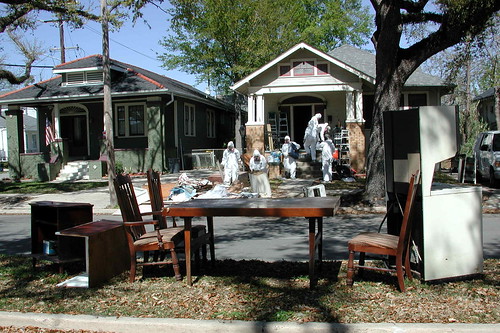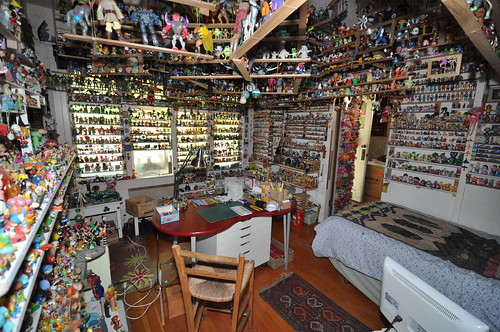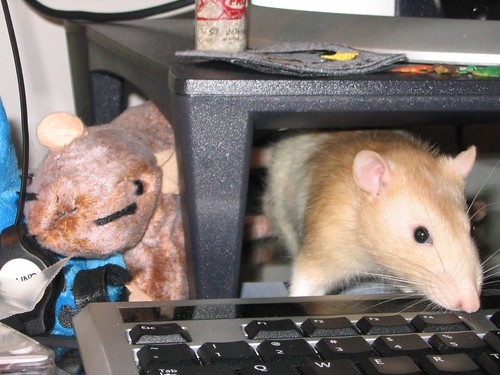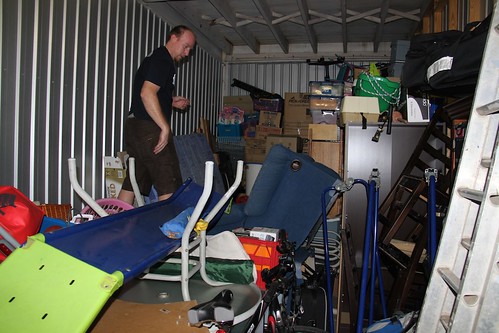One of the big pre-travel decisions many families face when they decide to travel long-term is what the heck do we do with all our stuff??. Sell it, store it, or rent out the house with the furniture included? What to do?
A lot of families go down the path of storing it. If you get three months into your trip and hate it, you don’t have to buy everything again. Perhaps you are only planning on traveling for 6-12 months and have decided the cost of storage is worth it. Or you might have a close friend or family member that is happy to store your gear for free in their yard or spare room (lucky you!).
Maybe you are just really attached to your things you don’t have to make too many hard decisions. And let’s face it, selling off an entire household of gear is hard work. Garage sales, photographing everything and putting it up online, answering inquiries, negotiating a price, and postage it’s time-consuming at a time when you just want to be planning your trip.
We stored our gear for months before leaving Australia in January 2010. We didn’t want to get 2 months into our trip, decide we’d made the wrong decision, and have to buy everything again. We negotiated a good long-term storage deal, packed everything away, locked the door, and hit the road.
When we first reopened the storage shed after twelve months overseas we learned a lot of lessons about what not to do when you store your gear long term. After another six months of storage (so 18 months in total), we’ve shipped everything overseas to set up a house in Malaysia. With every new box, we’re opening we’re learning new lessons.
Before you pack:
- Get your fabric couches, rugs, mattresses, and pillows professionally cleaned.
Fabric goes moldy in storage. Tables and chairs are easy to wipe clean, but once the molds below the surface of a couch, rug, or mattress it’s game over. - If your mattresses or couch is worth a lot of money, wrap them in plastic before they’re stored.
- Acquire decent boxes
They can cost a lot but there’s nothing worse than packing a box and having it fall apart on you when you lift it up. Your boxes are going to sit in storage, piled on top of each other bearing the weight of the box on top so they’re going to need to last. - Buy decent packing tape
The really cheap stuff doesn’t stick. You’re going to be taping a lot of boxes so you only want to have to tape each box once. Plus you really don’t want the bottom falling out when you pick it up. - Don’t keep broken things?
When you return from overseas and have a whole new life to set up, are you really going to fix that broken chair you’ve been wanting to fix for ages? No, you’re going to be too busy setting up a new life. Get rid of it now. - Cull anything big you don’t like
If you don’t like a piece of furniture now, you can bet after a few years away you’re going to really hate it the next time you see it. Look at it this way? if you get rid of all the big items you don’t really like, you can probably downsize the storage space that you need and use the money that you save on storage costs to replace them with things you actually want when you return! - Be ABSOLUTELY SURE YOU REALLY DO WANT ALL YOUR STUFF
Once it’s in storage it’s really hard to sell your stuff. Everything is boxed or pulled apart. Getting that bed from the back of the storage shed and putting it together to take photos to sell it online before having to dismantle it again to get it back into storage until it sells is a pain. The storage shed isn’t going to look kindly on you having a garage sale there. If you suddenly decide you want to sell everything and live nomadically forever, selling it once it’s in storage is a pain in the butt.
Declutter your life!
- For the duration of your travels you are going to be learning to live with less. Start embracing it now.
- Every extra box you pack increases the size of the storage space you need
The bigger the storage space the more it costs. As you pack every box, ask yourself do I really want to pay money to store this? - Ditch the dust collectors
Are shelves full of old nic-nacs? Unwanted Christmas gifts? This is the perfect chance to declutter all the useless ornaments out of your life. when you come back if anyone ever asks just say the removalist’s lost it. - Cull your wardrobe
If you don’t like it now if it makes your butt look huge or if it’s out of fashion get rid of it. Honestly, after a year or two of living out of a suitcase with just a few outfits, you’re going to open these boxes of clothes that you hate and throw them out anyway so do it now. - I might fit into them one day!
All those clothes that you wore in your early twenties that you’ve been keeping with the promise to yourself that? One day I’ll fit into them again? ? ask yourself three questions. Am I really ever going to fit into this again? Will it be out of fashion then anyway? Do I honestly want to pay money to store these clothes I might never wear again? You’ve already been holding onto them for 5, 10 years now you are paying to hold onto them. Donate them and if you do come back from the trip lighter than you started (which is hard with all the great food you are going to be eating) treat yourself to new clothes. - Kids Clothes
Work out how long you are going to be away and donate anything that’s going to be a way to small when you get back. And what about all those keepsake outfits? The clothes they wore home from the hospital, their first birthday dress, those booties an elderly Aunt knitted. Be ruthless and just keep a couple of the nicest things. - Halve the number of shoes you own
Your going to spend the next year wearing only one or two pairs of shoes and return to a mountain of dusty old shoes wondering what the hell you ever needed all these for. If you haven’t worn them in two years get rid of them. Don’t forget the kid’s shoes – anything they’ll have outgrown should go. - Attack your bookcases
Do you have shelves filled with old university textbooks, DIY Handyman guides, magazines, and encyclopedias from the 80s? Is anyone ever going to look at these again? Can you borrow them from a library, find the information online or buy an e-book version?
- Old school memorabiliaIf you come from a family of hoarders like me, you probably have a box filled with your old school books, trophies, and certificates that your mum faithfully kept for years and now you have them. Why? Do you really need all of those schoolbooks or can you cull it down to just two or three books? What about those certificates and trophies? Do you need the one you got for picking up garbage when you were 7? Or for coming last in a spelling test but being a good sport about it? Only keep the ones you are really proud of.
Let’s talk about the kitchen
- No matter how well you clean everything, it’s going to be dusty, moldy, or both when you open it again in a few years.
I’m not saying don’t clean your kitchen items before packing them, just don’t spend hours and hours on each and every item. no matter how well you clean it tiny microbes that you can?t remove is going to multiply over the next few years. Pick your battles and be prepared to spend the first few weeks unpacking and washing everything! - Throw out your wooden spoons
If they’ve been used, they will go moldy in storage and potentially spread mold to other items. They’re cheap to replace so toss them out. The same goes for any wooden bowls, placemats, or coasters. If they can’t be sanded back, toss them now. - Halve your Tupperware
Most family kitchens are a breeding ground for plastic containers. Throw out anything missing a lid, broken, worn, or stained. Sitting in a box for years really ages plastic containers so if they’re not perfect now ditch them. Don’t forget old drink bottles while you at it. - If you don’t use the appliance dump it
Do you really want to pay good travel money to store that donut maker or waffle iron you haven’t used in 5 years? - How clean is your kettle?
If it’s old and the element is dirty, will you use it again after it’s been in a box for years? - The same goes for the toaster!
If you can?t get all traces of food out of it are you really going to use it again?
How many pillowcases?
Families tend to accumulate a lot of linen. You can end up with literally boxes and boxes of the stuff by the time you take into account sheets, towels, quilts, and mattress protectors it’s all bulky and takes up room in a storage shed.
- If it’s stained by body sweat ditch it now
If you can’t wash the stains out now, are you really going to want to sleep on this again after it’s been in storage? - Do you really need 50 pillowcases?
Every time you buy new sheet sets they come with pillowcases. Sheets wear out over time, but pillowcases live on and breed pillowcase colonies in your cupboards. You can probably cull your pillowcases by 2/3 and not even miss them. - Throw out old pillows
If they’re stained at all throw them out. You don’t want to know what they are are going to look like after several years of sitting in a dark storage shed quietly growing their own life forms. They’re probably mutiny and strangle you in your sleep if you ever use them again. - Use compression sacks for bulky items
Doonas and blankets take up a lot of room in a box. Compress them if you can in vacuum-sealed bags or compression sacks.
TOYS!
OK here’s the chance you’ve been waiting for a chance for the kid’s toys to seriously disappear but wait
- Even 2 years olds have really good memories when it comes to their precious toys.
You’ll be surprised how long kids remember their toys. Especially when they are only traveling with a limited selection of their toys and their memories of the hundreds of toys they have back home. Be careful when you throw things out, particularly favorites. - Instead, concentrate on ditching broken toys and things they have grown out of.
- Board games
If it’s missing pieces you can?t substitute, don’t store them. They take up a lot of room.
THE HOME OFFICE
- Here’s your chance to really cull.
Is your office filled with paperwork, old tax records, filing, and notes from an old job, that report you did for a summer internship ten years ago? It s surprising how many boxes of paperwork the average home office has. Be ruthless. Throw out any tax records you no longer need. Scan that old report or assignment if you really can t bear to be parted with it. Will you ever use those training course notes on how to use Word 97 from the last decade that has been sitting in a box you just haven’t gotten around to chucking out? - Obsolete technology
Old modems, old phones, power cords for mobiles you no longer have … I bet you have heaps of this stuff laying around the office. It’s obsolete now, it’s not going to come back in fashion like your favorite jacket if you hold onto it for a few more years. Throw them out! Donate any old mobiles to a good cause or give them to a friend with teenage kids. You don’t need them.
CHOOSING A STORAGE SHED
- Ask for a discount
You are going to be storing your stuff for a long time. Shop around until you find a place that offers a long-term discount. You should be able to get 30-50% off the advertised rate. - Check out their Pest Control
The last thing you want is to come back and find rats and cockroaches that have been partying in your things while you were gone. Make sure they have adequate pest control (Find out more at: https://www.pestcontrolexperts.com/local/texas/). If you are storing at a relative’s house, leave them with enough money to get the place sprayed every six months and leave out rat traps. - Make sure it’s leakproof
Make sure the building is well maintained and there are no leaks. Check out the drainage around the facilities. The last thing you want is soggy boxes. Even if you’re just storing in your neighbor’s backyard, think about what will happen if there’s a heavy downpour. Will the roof leak? That cheap old shed might look like a cheap option now but is it going to let the elements income the first summer storm? Will water run over the concrete slab? Think about it now, not when you are on a beach in Thailand unable to do anything. - Don’t store on a floodplainOK this one might seem a little obvious, but it had been 30 years since there had been a flood in Brisbane and 7 years of drought. Flooding was the last thing on our minds. Thankfully our storage shed was high enough on a hill, but when your overseas hearing about all the rain back home it can spoil your holiday to be worrying about your gear.
- What if you have to change storage solutions while you’re overseas?
That friend might be happy to store your things for now, but what happens if they need that shed or room? Or you decide to stay overseas traveling for a few more years? What happens if the storage shed company closes down? Or decide to put up the fees while you are away and you need to find another solution? You should figure out the answers to these questions before you leave the country.
Time to pack the storage shed!
- Label everything and be specific
?Kitchen Stuff? might mean something to you now, but when you come back to unpack you are probably not going to have a clue. You don’t have to itemize every item but it pays to be a little more specific than kitchen stuff. You’ll save yourself a lot of time and stress when unpacking if you can figure out the contents of the box first. - Organize the storage shed
The more organized the storage shed is the more you’ll fit in. Stack boxes on boxes, put the heaviest things on the bottom, lay tables on their side, and pack around them - Make sure you know where all the bolts/screws are to put things back together again
- Think about what you’ll need first when you get back
What things are you going to need straight away when you get back? What are you going to WANT as soon as you get back? Make sure these are accessible. - Keep some toys in an accessible spot
When you open the shed again for the first time your priority is going to be making sure everything is OK. For the kids it’s going to be getting into that box of toys they missed the most. Leave toys in an accessible spot. It’s also going to buy you a lot more time at the storage shed finding everything you want if the kids are happily occupied. - Leave a key with someone you trust
Make sure you leave a key to your storage solution with someone back home. That way if the gear needs to be moved to another location while you are overseas, someone already has the key. If someone needs to get into the shed for pest control purposes or to check for leaks, or you need something from the shed posted to you then simply – someone back home has a key.
- Leave important paperwork with family or in a prominent place in the storage shed.
Wills, birth certificates, tax records … sometimes unforeseen things come up and you need access to these types of documents while overseas. Leave them with a trusted family member or in a prominent place in the storage shed so they can be accessed for you.
When you get back
- Check the gas in your fridge before you turn it on
We learned this one the hard way. Gas leaks out over time. If you turn your fridge on it might have enough gas for work for a day or two, but soon the gas will run out and potentially blow the circuits. Get someone out to check it! - Be prepared for appliances to die in the first week
Electrical appliances don’t like being left alone. Washing machines in particular have a tendency to not work again after a few years in storage. Expect that you might have some cost outlays you didn’t expect. - Be ready to clean like you never have before
Things in storage get dusty. Even inside boxes. Clothes, sheets, kitchenware, books, DVDs, toys everything is going to be dusty and need cleaning. Enjoy!








